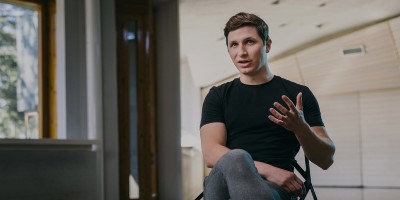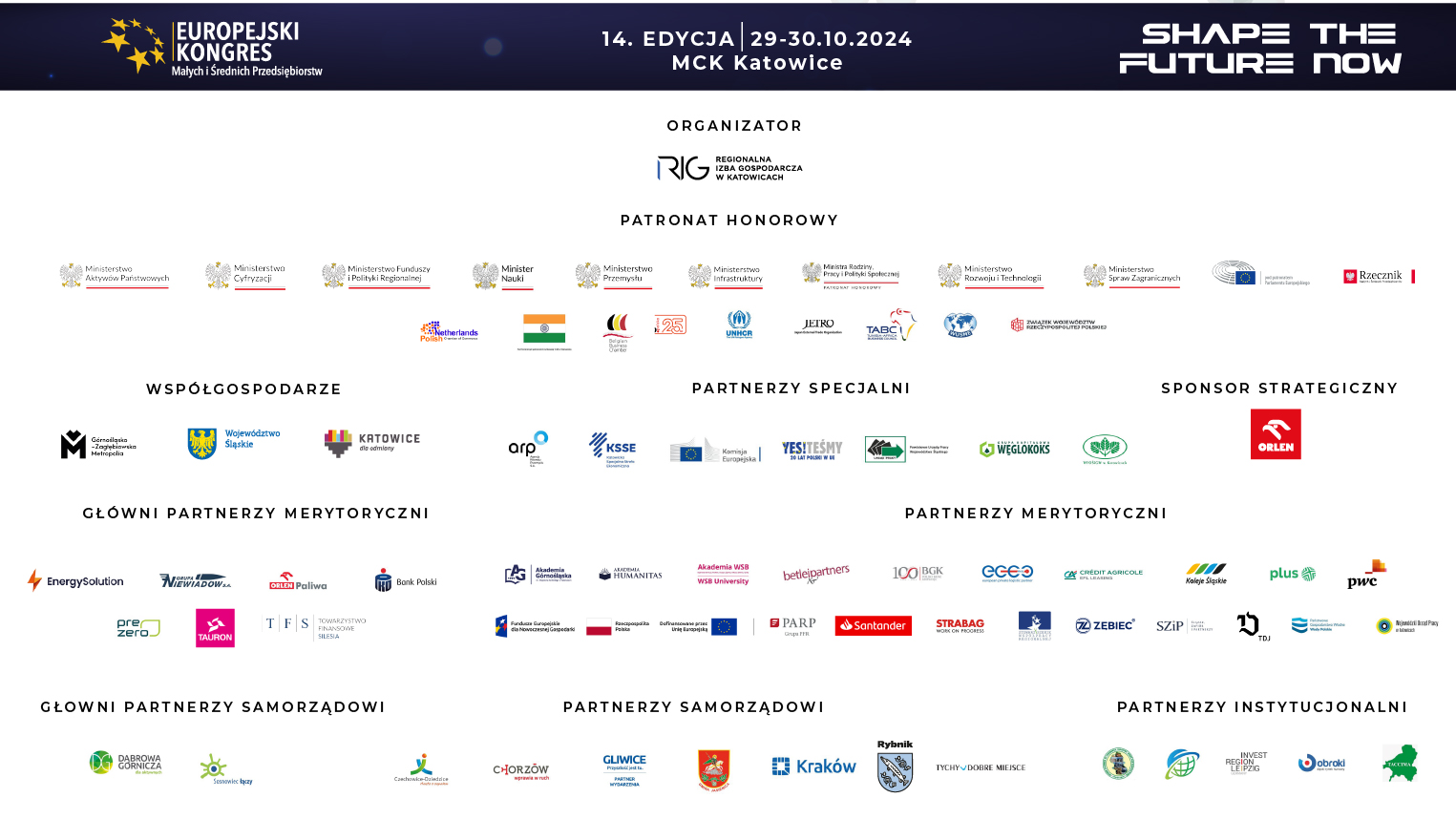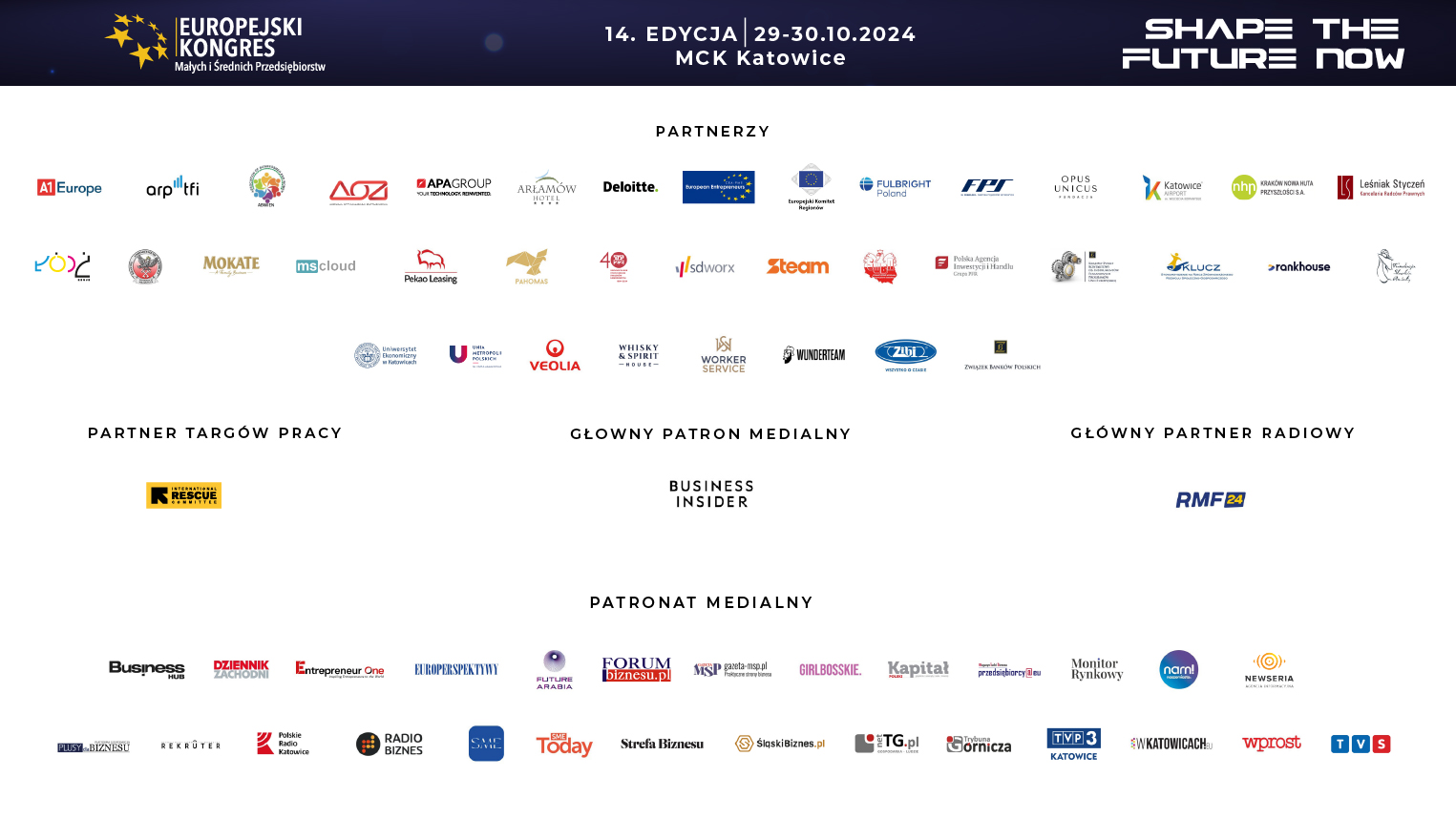
Changing the world for the better is our global challenge - Rafał Modrzewski, CEO of ICEYE
Rafał Modrzewski, CEO of ICEYE, Special Guest and winner of the Economic Award of the 14th European Congress of Small and Medium-Sized Enterprises, organized by the Chamber of Commerce and Industry in Katowice October 29-30, talks about how the idea of founding a space startup with global recognition was born.
I wanted to create satellites to change the world for the better. Doing business was a consequence of this need, not an end in itself, you said in an interview. Was this the main motive and idea behind creating a space company?
The idea of building global satellites originated with such a purpose, to make information about the Earth available to all interested parties. It is important to remember where the entire community of people interested in this space technology came from. Either these were people from NASA, or from other space agencies or universities. For such people, connected with the scientific community, the goal in itself was not to create a company, but rather to develop such technologies that allow us to acquire new knowledge about what is happening around us.
The road from startup to global leader in such an industry was not easy. First, you left Poland for Finland, and that's how you got the business off the ground. Why exactly there?
I didn't leave the country to start business activities, but primarily for academic purposes, to study with the Erasmus program. I went to study for my master's degree, and the plan was that I would return to Poland quickly. But in Finland I came up with the idea of a satellite startup, together with a colleague from Aalto University. The truth is that at the time we didn't think about how it would develop. We said to ourselves - we're opening a company, we'll see how it goes for us. The main idea was to change the world for the better with our ideas, not to do business. We were young and full of idealism.
On this ground, the company ICEYE was founded, what experiences and problems accompanied this?
During its development we encountered virtually every possible problem! We didn't have a clue about anything, except engineering, and we didn't know much about that either. Running a company is, of course, working with people, and as a rule, they are older than each other and from different countries. When we founded the company we were only 22 years old each. We also didn't have financing... The key to success is to act in such a way that we solve the problems and obstacles that arise, push towards the goal, and not give up.
After that, things certainly went easier. You were the first company in the world to launch a microsatellite equipped with specialized radars, enabling precise, fast and reliable imaging of the Earth. What benefits does such technology bring, in what areas can it be used?
We started by measuring ice in the Arctic Sea, but in fact it is possible to measure virtually everything: ice thickness, fishery levels, the state of coral reefs, ocean litter, forest fires, flood conditions. Everything that happens on Earth. Satellite systems in general are used to learn more about our globe. Thanks to us, you can practically see everything as if it were on your palm. What the land is used for, whether it is fields, meadows, forests. How it is altered by human activity, where all the carbon molecules are hiding, that is this carbon footprint that can be tracked. The idea was that microsatellites would provide information to better understand the world around us and the processes in it.
We are living in times of a technological wave that is transforming our reality. How do you see the future of satellite systems and the space industry, the so-called new space? Will they help solve such serious problems as the climate crisis, for example?
This was and is generally the premise of our technology. More and more systems will emerge to address many of the problems of the modern world. I have high hopes for the space industry.
ICEYE has 20 satellites in orbit and a market value of more than $1 billion. For many entrepreneurs, your path and professional success can provide inspiration for growth. What would you advise startup originators who dream of their business becoming a “unicorn”?
I always tell them to do what they really like, what they love. Because if they don't, at some point they will run out of energy to act and overcome difficulties. Space, research, engineering are first and foremost my hobbies, and then work.
And what choice of educational path do you recommend for young startups?
I will always advise engineering. If you don't spend your young years studying science, it's hard to go back to it later. A person learns all his life, but it is not really easy, for example, 10 years after finishing education to return to mathematics and physics. There is a certain moment in life when we should acquire this knowledge. Later it gets too complicated.
The precursor to our conversation is the awarding of the Economic Prize of the 14th European Congress of SMEs in recognition of, among other things, the effective promotion of entrepreneurial models, the pursuit of innovation, and action for the economic development of our country. What is the significance of such awards for you?
This particular award has a special dimension for me, because it is awarded in Silesia, and this is my birthplace, here I grew up and grew up. I am very pleased to be able to show that people from this region are capable of achieving international success.
You are from Katowice, but you probably don't visit here often, due to the fact that ICEYE has offices in six countries around the world. Do you notice any changes in the capital of Upper Silesia?
I visit rarely, once a year, but my colleagues tell me a lot about what is happening in Katowice. I notice the changes as much as possible, in the last ten years the city and the whole region has developed, to the benefit of course, it has undergone a huge transformation.
If we are at development, what are ICEYE's plans for the near term, and looking at the longer term?
We want to remain a global leader in the Earth observation market, not only by radar, we want to launch many more satellites. Space, the universe puts no limits on development.
Interviewed by Jaga Kolawa
The interview appeared in the September issue of Business HUB.
Downloadable online version of the issue: HERE.

